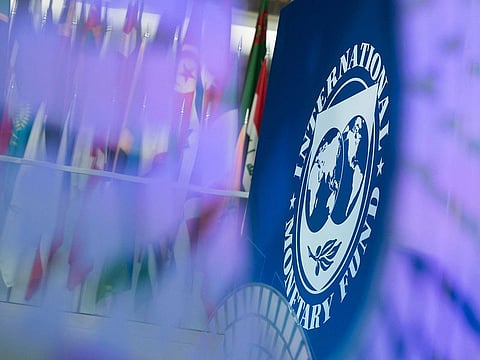IMF raises MENA, Pakistan growth outlook as region weathers global shocks
Growth momentum across MENAP builds on Gulf diversification and resilient consumption

Dubai: Economic activity across the Middle East and North Africa and Pakistan has held up better than expected in 2025, prompting the International Monetary Fund to raise its regional growth forecast. The region’s GDP is now projected to expand by 3.2% this year, up from 2.1% in 2024 and a 0.6-percentage-point increase from the Fund’s May outlook. Growth is expected to accelerate further to 3.7% in 2026, driven by stronger oil production, resilient domestic demand, and steady progress on structural reforms.
At a media briefing in Dubai on Tuesday, Jihad Azour, Director of the IMF’s Middle East and Central Asia Department, said the region had “shown remarkable resilience despite persistent global uncertainty and heightened geopolitical tensions.” He noted that while recent global trade restrictions and tariff measures had stirred concerns, “their impact has been limited and short-lived.”
Oil exporters gain from output rebound
For oil-exporting economies, growth is set to reach 3% in 2025 and 3.4% in 2026, supported by higher production as OPEC+ unwinds voluntary cuts. Azour said the gains were not solely about crude output. “Diversification efforts, especially across the GCC, are gaining traction with non-oil sectors playing an increasingly important role in sustaining growth and creating jobs,” he said.
Oil prices are expected to average about $69 a barrel next year, strengthening fiscal balances and funding diversification agendas in the UAE, Saudi Arabia, and Qatar. For Dubai and other regional financial hubs, higher trade and logistics volumes are also underpinning broader service-sector momentum.
Importers ride the remittance and tourism wave
Among oil importers such as Egypt, Jordan, and Morocco, the IMF sees activity picking up to 3.5% in 2025 and 4.1% in 2026. Lower commodity prices, strong remittance inflows, robust tourism, and improved agricultural output are driving the recovery. “Continued progress on macroeconomic stabilisation and structural reforms is helping these economies build resilience and strengthen their outlook,” Azour said.
Inflation is moderating across most economies as tighter monetary policy and easing food and energy prices filter through. The Fund also noted improved financing conditions, with sovereign spreads narrowing and several countries regaining market access. Regional bond issuance is expected to reach nearly $30 billion this year, well above the recent average, reflecting renewed investor confidence.
Reform window and persistent risks
Azour cautioned that the positive momentum should not lead to complacency. Global uncertainty, potential financial-market tightening, and elevated geopolitical tensions remain key risks. “Countries with large financing needs or banking systems heavily exposed to sovereign debt could come under pressure if borrowing costs rise,” he warned.
The Fund urged governments to use the current expansion to rebuild fiscal and external buffers and to continue reforms that reduce the state’s footprint, empower the private sector, and deepen financial markets. “The current growth momentum offers a valuable window of opportunity to rebuild buffers and accelerate reforms,” Azour said.
Inclusive growth and digital transformation
The IMF’s regional outlook also called for policies that make growth more inclusive by expanding opportunities for youth and women, improving education and healthcare, and broadening access to finance. Azour added that digitalisation and artificial intelligence “offer additional opportunities to raise productivity and narrow income gaps.”
Conflict-affected economies such as Yemen, Sudan, and parts of the Levant remain fragile but show cautious progress, supported by ceasefires and targeted international aid. The IMF stressed that early macroeconomic stabilisation, access to financing, and stronger institutions are critical for sustaining post-conflict recovery.
“The story of 2025 is one of resilience amid uncertainty,” Azour noted. “The challenge now is for policymakers to translate this resilience into sustained and inclusive growth. The IMF’s partnership with the region remains strong and steadfast through financing, policy advice, and capacity development.”
Sign up for the Daily Briefing
Get the latest news and updates straight to your inbox



